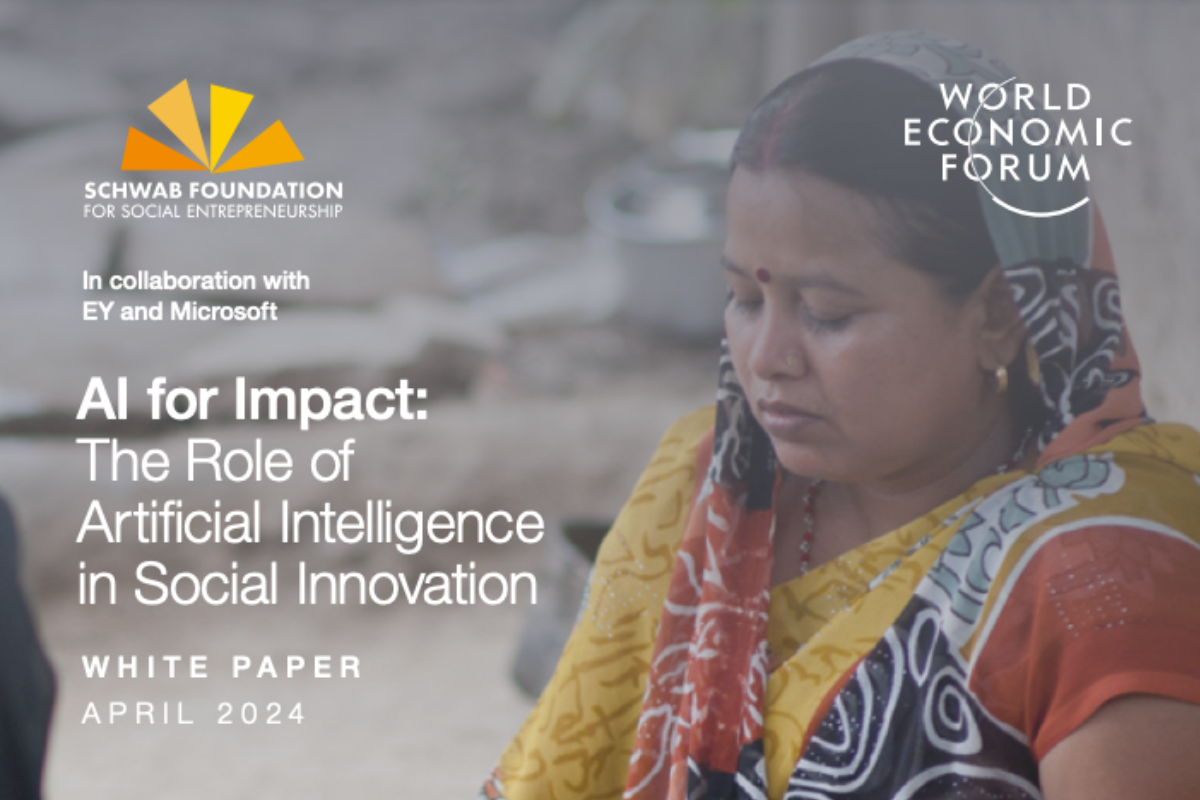
AI for Impact: The Role of Artificial Intelligence in Social Innovation, Schwab Foundation for Social Entrepreneurship
This report by the Schwab Foundation, EY, and Microsoft explores AI’s transformative role in global social innovation. Drawing on insights from 300 social innovators across 50 countries, it highlights AI’s impact on healthcare, environmental sustainability, and economic empowerment. The report examines barriers to adoption, opportunities for scalable solutions, and ethical considerations, offering case studies and practical guidance for leveraging AI responsibly to address societal challenges.
View resourceSummary
This report, developed by the Schwab Foundation with EY and Microsoft, examines how AI is transforming social innovation globally. Based on data from 300 social innovators across 50 countries, it highlights AI’s potential to address societal challenges, while exploring barriers and opportunities for adoption. Key insights include:
- AI in ‘impact domains’:
- Healthcare: 25% of social innovators use AI to improve access, diagnostics, and personalised care.
- Environmental Sustainability: 20% apply AI to climate action, biodiversity, and conservation through predictive analytics and real-time insights.
- Economic Empowerment**: Particularly in low- and middle-income countries, AI supports agriculture, job creation, and financial inclusion.
- Global adoption: AI use is evenly distributed across high- and low-income regions, but challenges persist in resource availability and localised support. Low-income countries lead in economic empowerment initiatives, while high-income regions focus on environmental innovation.
- Barriers: social innovators face challenges like data bias, high resource demands, skills gaps, and ethical concerns, all of which can hinder scalable AI adoption.
- Opportunities for impact: AI’s strengths include automating tasks, enabling data-driven decision-making, personalising interventions, and scaling solutions. It also enhances responsiveness in dynamic scenarios like disaster response and conservation.
The report provides a range of case studies and serves as a foundational guide for leveraging AI responsibly to address global challenges and foster equitable progress.

We’d love to hear from you!
Reach out to one of our team members, and share input and ideas about how we can evolve Understorey.
Get in touch